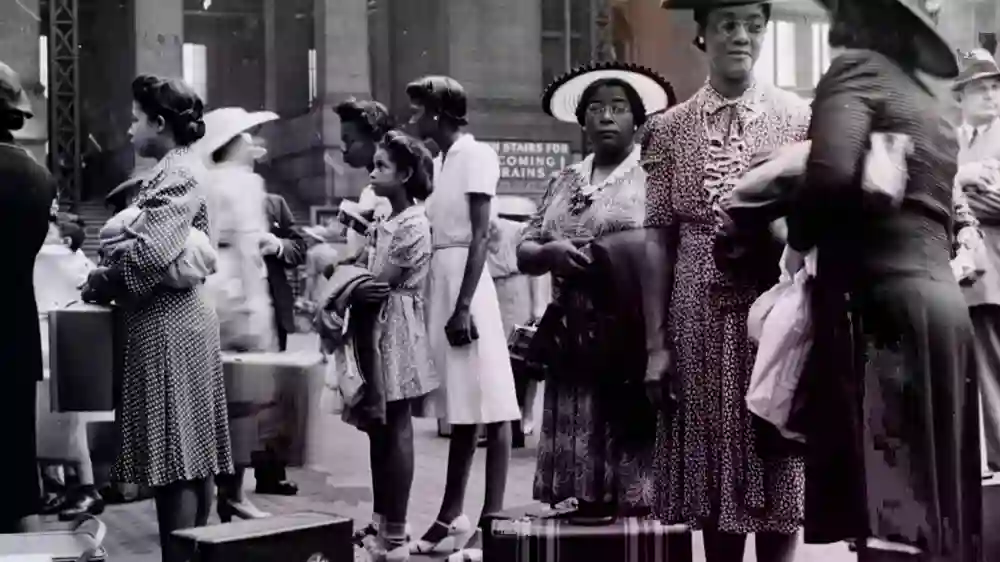28 Days of Black History Month Facts You Didn’t Know

Black History Month—yeah, it’s more than just the shortest month of the year. It’s a time to step back, reflect, and celebrate the lives and accomplishments of people whose stories have been buried or overlooked. So, here’s a 28-day breakdown of some Black History Month facts you didn’t know—or at least didn’t know this much about. You’re welcome in advance.
Day 1: The Birth of Black History Month
Ever wondered where Black History Month came from? Well, let me tell you. It wasn’t always the month-long celebration we know today. It started as Negro History Week back in 1926. Good ol’ Carter G. Woodson, the man himself, kicked it off because, shocker, African American history wasn’t getting its due in schools. By 1976, it officially morphed into a month-long celebration, and now we’ve got the whole month of February to honor this history.
- Fun fact: Carter G. Woodson is called the “Father of Black History” for a reason. He took on a monumental task and stuck with it.
Day 2: The First African American to Win a Pulitzer Prize
Gwendolyn Brooks was not just an incredible poet—she was the first African American to win a Pulitzer Prize for Poetry back in 1950. Her book Annie Allen earned her the prize, and she forever changed the literary landscape.
- Fact: Brooks was a true advocate for the Black community. Her work often explored themes of racial identity, making her a pivotal figure in the literary world.
Day 3: Rosa Parks’ Bold Stand
We all know Rosa Parks refused to give up her seat on that bus, right? But here’s the kicker: her decision wasn’t an impulse. Nope, she had been working with the NAACP for years. Parks’ act of defiance in 1955 set the stage for the Montgomery Bus Boycott, one of the most powerful moments in the Civil Rights Movement.
- Black History Fact: Rosa Parks wasn’t the first Black woman to refuse to give up her seat, but she was the one who sparked the movement.
Day 4: The First African American Supreme Court Justice
Thurgood Marshall made history in 1967 as the first African American to be appointed to the U.S. Supreme Court. Before this, he was a powerhouse lawyer, arguing landmark cases like Brown v. Board of Education, which desegregated schools. He wasn’t just a legal mind—he was a game-changer.
- Black History Month Facts for Kids: Marshall had argued 32 cases before the Supreme Court—and guess what? He won 29 of them.
Day 5: The Harlem Renaissance
The Harlem Renaissance was the most wicked cultural explosion of the early 20th century. Picture it: Harlem, New York, 1920s. Writers, musicians, and artists were finally getting their due, and the world was taking notice. Big names like Langston Hughes, Zora Neale Hurston, and Duke Ellington came out of this period.
- Black History Fun Facts: The Harlem Renaissance didn’t just change art—it reshaped how African Americans viewed themselves and how others viewed them.
Day 6: The First African American Woman to Become a Millionaire
Madam C.J. Walker made bank. Not just a little—she was the first African American woman to become a self-made millionaire in the early 20th century. She achieved this by developing a hair care line specifically for African American women. Yeah, talk about breaking glass ceilings and building an empire while doing it.
- Black History Facts for Kids: Walker was so ahead of her time that her legacy still inspires women in business today.
Day 7: The Underground Railroad
Harriet Tubman. That name? Iconic. This woman single-handedly helped hundreds of enslaved people escape to freedom via the Underground Railroad. She risked everything—her safety, her life—just to make sure others could live free.
- Fact: Harriet Tubman wasn’t just a conductor; she was also a spy and a nurse for the Union during the Civil War. Yeah, this woman was an absolute legend.
Day 8: The First African American Woman in Space
Dr. Mae Jemison, y’all. She flew into space aboard the Space Shuttle Endeavour in 1992. First African American woman in space. Let that sink in. She wasn’t just an astronaut either—she’s a trained physician and chemical engineer.
- Black History Month Fun Facts: Jemison didn’t just break barriers in space; she also founded a company that develops advanced technologies. I mean, what can’t she do?
Day 9: The Civil Rights Act of 1964
This one was a huge victory. The Civil Rights Act of 1964 is, honestly, one of the most important pieces of legislation in U.S. history. It outlaws discrimination based on race, color, religion, sex, or national origin. It wasn’t an easy win, but it was necessary.
- Black History Month Facts for Each Day: The fight for this wasn’t quick. It took years of protests, legal battles, and—yes—bloodshed.
Day 10: Jackie Robinson Breaks the Baseball Barrier
Jackie Robinson. The man who broke baseball’s color barrier in 1947. He played for the Brooklyn Dodgers, and that wasn’t just a win for him—it was a win for everybody. His courage paved the way for future athletes, regardless of race.
- Fun Fact: Robinson wasn’t just a baseball player—he was a Civil Rights advocate who used his fame to push for social change.
Day 11: The Black Panther Party
Now, let’s talk about the Black Panther Party. Founded in 1966, the Black Panthers were all about self-defense and equality. But here’s a fun little tidbit—aside from their more militant image, they also organized programs like free breakfast for children and health clinics for underserved communities.
- Black History Facts: The Black Panthers were often misunderstood and misrepresented, but their impact on Black empowerment is undeniable.
Day 12: The First African American U.S. Senator
Hiram Rhodes Revels became the first African American to serve in the U.S. Senate back in 1870. His election marked a turning point in American politics during Reconstruction. He wasn’t just a politician—he was a symbol of the shift toward racial equality.
- Fun Fact: Revels was also a pastor before stepping into politics. Talk about versatile.
Day 13: The Fight for Voting Rights
The Voting Rights Act of 1965 was a monumental step forward in the Civil Rights Movement. It aimed to eliminate voting barriers like literacy tests that were used to disenfranchise Black Americans, especially in the South.
- Black History Facts: It’s easy to take voting rights for granted now, but back then? People fought, bled, and died for the right to vote.
Day 14: The Tuskegee Airmen
The Tuskegee Airmen—these men are heroes, plain and simple. They were the first African American military pilots, and they served during World War II. Despite the prejudice they faced, these men were so good at what they did, they earned a bunch of awards, including the Congressional Gold Medal.
- Fact: Their bravery and skill in combat were instrumental in shifting public perceptions of African Americans in the military.
Day 15: The First African American to Earn a PhD
W.E.B. Du Bois. The man made history when he became the first African American to earn a PhD from Harvard in 1895. Du Bois wasn’t just a scholar—he was a civil rights activist and co-founder of the NAACP. He dedicated his life to fighting for equality.
- Black History Facts: Du Bois’ book, The Souls of Black Folk, is still required reading today.
Day 16: The Role of African Americans in the Abolitionist Movement
We can’t talk about Black History Month without shouting out the abolitionists. Figures like Frederick Douglass, Sojourner Truth, and Harriet Tubman risked everything to free enslaved African Americans. Their courage changed the course of history.
- Fun Fact: Frederick Douglass was not just a former slave—he was one of the most eloquent writers and orators in American history.
Day 17: The Origins of Juneteenth
Juneteenth, which is celebrated on June 19th, marks the day in 1865 when enslaved African Americans in Texas found out they were free—two years after the Emancipation Proclamation. It’s a celebration of freedom, and it’s now a national holiday.
- Black History Month Fun Facts: Juneteenth is often called “America’s Second Independence Day”—because, for many, freedom came much later than July 4th.
Day 18: The Great Migration
In the early 1900s, African Americans moved in droves from the South to the North, escaping Jim Crow laws and seeking better opportunities. This migration shifted the political, cultural, and social landscapes of the country.
- Fact: The Harlem Renaissance was partly a result of this migration—because when people leave one place, they bring their culture with them.
Day 19: The Rise of African American Cinema
Oscar Micheaux is a name you might not know, but you should. He was one of the first African American filmmakers and one of the founders of early Black cinema. His films, made in the 1920s and beyond, tackled race relations head-on.
- Black History Fact: Micheaux’s work was bold for its time—sometimes controversial, but always unapologetic.
Day 20: The Legacy of Martin Luther King Jr.
You knew it was coming: Martin Luther King Jr.. His speech on the steps of the Lincoln Memorial in 1963 is one of the most famous speeches in history. He wasn’t just about speeches, though—King’s nonviolent approach to civil rights forever changed the landscape of American activism.
- Fun Fact: Did you know King was only 26 when he led the Montgomery Bus Boycott?
Day 21: African American Women’s Suffrage
When we think about the suffrage movement, we often think of white women. But African American women were there, too. Ida B. Wells was a journalist who fought for anti-lynching laws. Mary Church Terrell was a suffragist and civil rights activist who became one of the first African American women to earn a college degree. They both played huge roles in the fight for women’s rights.
- Black History Fun Facts: Ida B. Wells was once dragged out of a train for sitting in the “white section,” and she fought this case all the way to court.
Day 22: African American Inventors You’ve Never Heard Of
Did you know Lloyd Hall revolutionized food preservation? Or that Garrett Morgan invented the traffic light? These innovators were changing the world before we even knew it.
- Fact: Many African American inventors had their patents stolen or went unrecognized, but their work made major impacts.
Day 23: The Black Power Movement
Stokely Carmichael coined the phrase “Black Power” in 1966. This movement wasn’t just about power; it was about pride. It was about owning one’s identity and fighting for justice—on your own terms.
- Fun Fact: The Black Power movement pushed forward the idea of self-reliance and empowerment, which led to the rise of African American arts and business.
Day 24: The Role of African Americans in Music
Jazz, blues, rock ‘n’ roll…need I say more? African American musicians transformed music history. From Louis Armstrong to Aretha Franklin to Kanye West, the contributions are endless.
- Black History Month Fun Facts: Without African American musicians, the world of music as we know it wouldn’t be the same. Period.
Day 25: The Importance of African American Education
The fight for equal education has been ongoing. Booker T. Washington and W.E.B. Du Bois disagreed on how to achieve this, but both men were pivotal in shaping African American education.
- Fun Fact: Washington founded Tuskegee Institute, which is still around today, educating students in Alabama.
Day 26: The Importance of the Black Church
The Black Church has long been a center of strength and leadership in the African American community. It’s not just a religious institution—it’s where activism, culture, and community thrived.
- Fun Fact: The church was a safe haven during slavery and continues to be a gathering place for social and political change.
Day 27: The Civil Rights Movement Continues
The Civil Rights Movement didn’t end in the 60s. Its legacy lives on, with Black Lives Matter being a continuation of that fight. The push for equality and justice is ongoing.
- Fact: The struggle for civil rights is far from over. We’ve come a long way, but the fight continues.
Day 28: Honoring Black History Every Month
Black history doesn’t start and stop in February. It’s lived every day, in every corner of society. We should celebrate it year-round. As my grandma says, “It’s not about a month, it’s about a movement.”
Final Thought: Take what you’ve learned this month, and let it shape your actions every single day. Black history is American history.







